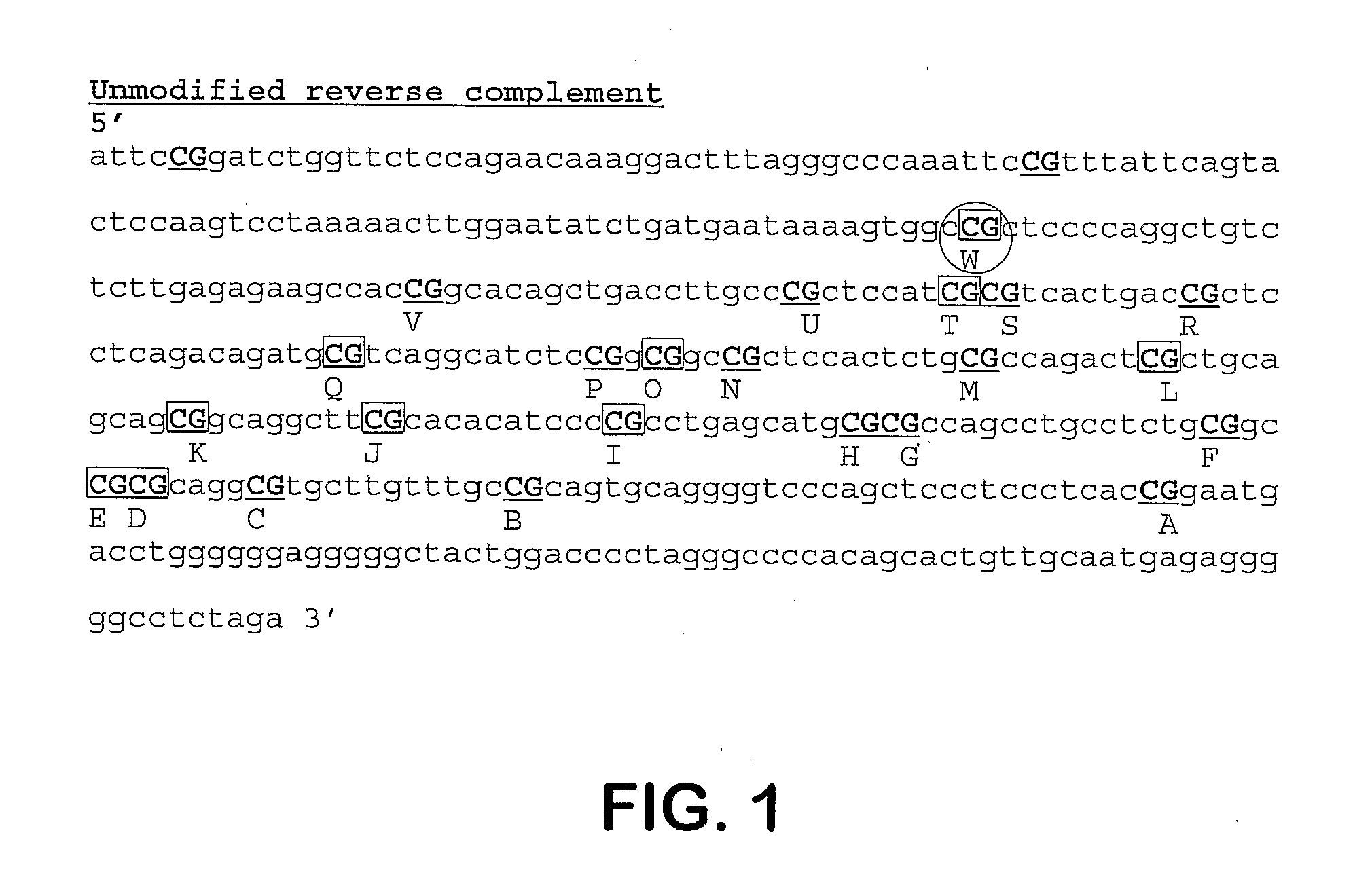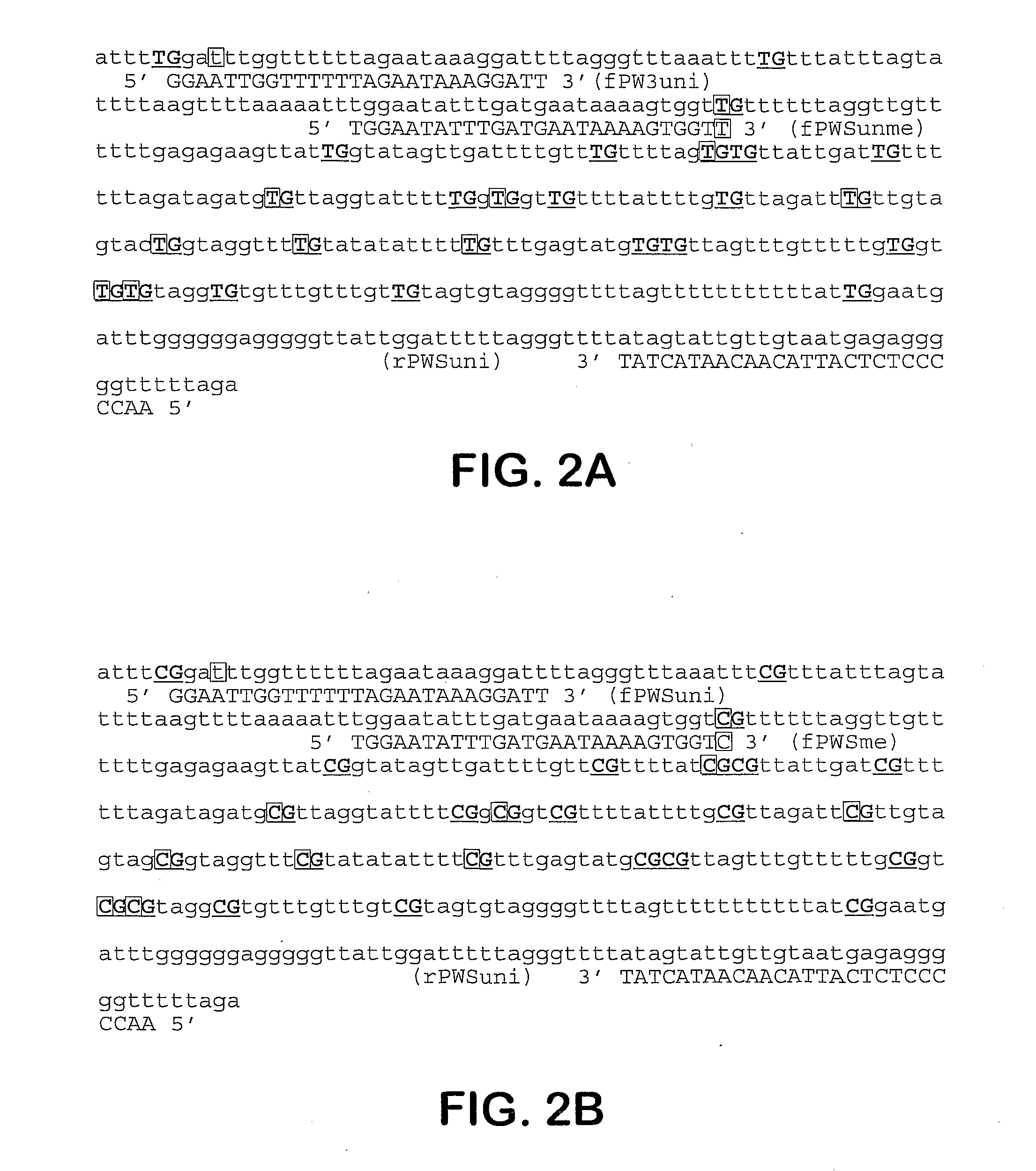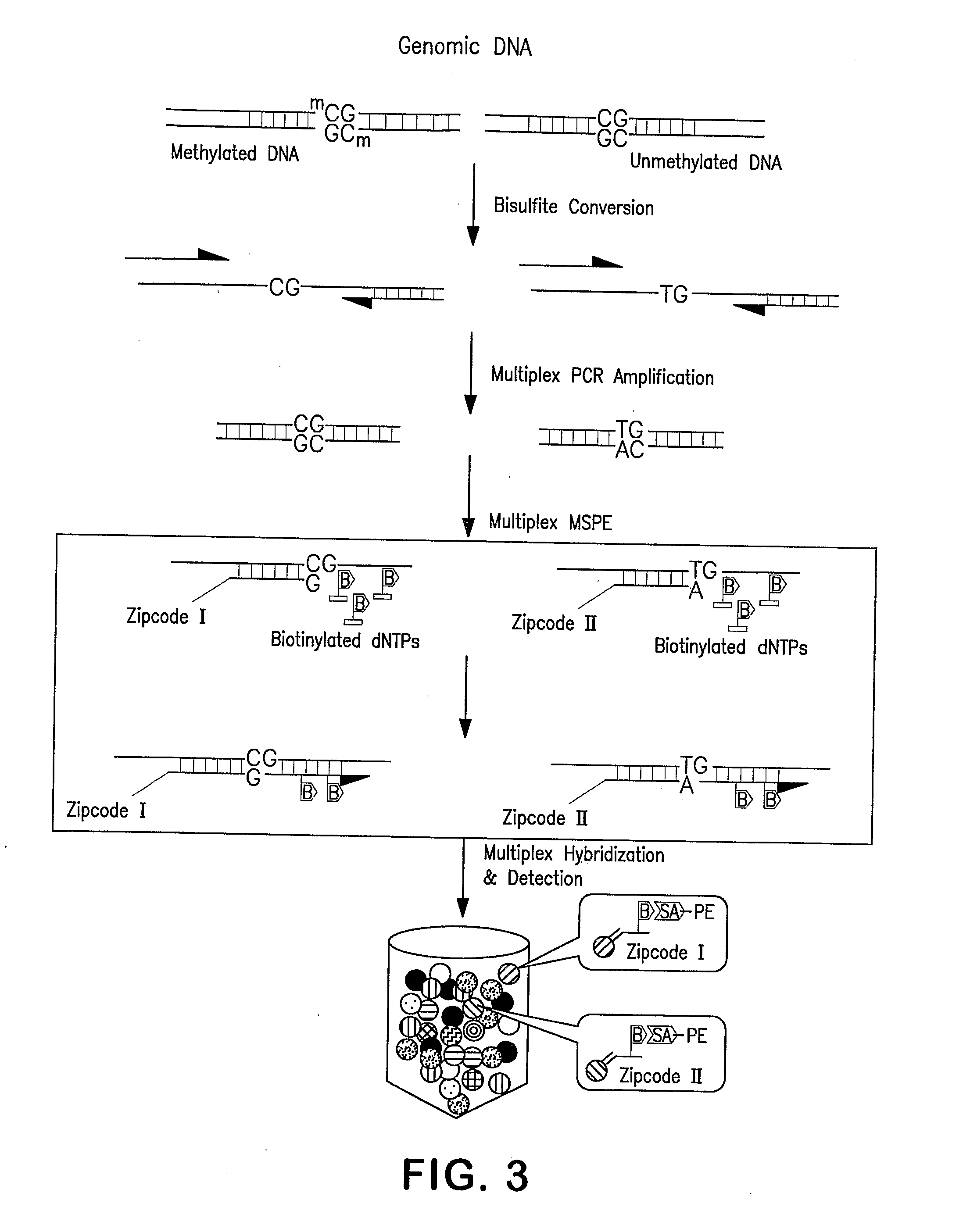Methylation Specific Primer Extension Assay for the Detection of Genomic Imprinting Disorders
- Summary
- Abstract
- Description
- Claims
- Application Information
AI Technical Summary
Problems solved by technology
Method used
Image
Examples
example 1
The MSPE Assay Protocol for Detection of PWS and / or AS
[0076]The MSPE assay of the present invention for the detection of PWS and / or AS is carried out according to the following protocol:
[0077]Genomic DNA is obtained from the blood of a patient and is modified with sodium bisulfite to convert 5-unmethylated cytosine at a CpG site to uracil while leaving 5-methylated cytosine at a CpG site unchanged.
[0078]PCR amplification is performed on the DNA using the fPWSuni and rPWSuni amplification primers (SEQ ID NOs. 3 and 4; FIGS. 2a and 2b) specific for the bisulfite modified reverse complement strand of the SNRPN gene on the 15q1.2-15q13 chromosomal region. During amplification, the uracil is replaced with thymine.
[0079]The fPWSme and fPWSunme discrimination primers (SEQ ID NOs 1 and 2; FIGS. 2a and 2b) specific for CpG site W in intron 1 of the SNRPN gene and coupled at the 5′ end with ZipCode sequences are hybridized to the DNA. The discrimination primers are extended using DNA polymera...
example 2
Application of the MSPE Assay to Whole Blood Samples
[0084]Normal genomic DNA was obtained from whole blood using the QIAGEN® QIAAMP® DNA Blood Midi Kit (Qiagen GmbH, Hilden, Germany) according to the manufacturer's protocol. PWS and AS genomic DNA was derived from cells obtained from Coriell Cell Repositories (Coriell Institute for Medical Research, Camden, N.J.). One microgram (μg) of genomic DNA was modified with the EZ DNA Methylation Kit (Zymo Research Corp, Orange, Calif.) according to the manufacturer's protocol.
[0085]For the PCR Reaction, 10 μL of sample DNA (from 50 μL eluate obtained from modification of 1 μg DNA) was mixed with the following reaction mix: 100 μM dNTPs; 2 mM MgCl2; 200 mM of each primer (fPWSuni and rPWSuni); 2 units AMPLITAQ® Gold DNA polymerase (Applied Biosystems, Foster City, Calif.) in a total reaction volume of 100 μL. The PCR Reaction was run under the following conditions: 10 min at 95° C. follows by 40 cycles of 95° C. for 30 seconds, 54° C. for 30...
example 3
Results of the MSPE Assay on Normal, PWS, and as Samples
[0091]The methylation status of five normal, 5 PWS, and 2 AS samples of known disease states was investigated in quadruplicate samples using the MSPE assay as described in Examples 1. The average percentage of methylated (M / M+U) and unmethylated (U / M+U) alleles in the samples is shown in the graph at FIG. 4 and Table 1. A range for normals was set at 25% to 75% methylated alleles, consistent with current SNP calling procedures. As shown in the graph at FIG. 4 and as set forth in Table 1, the normal samples ranged between 40% to 60% methylated sites; the PWS samples demonstrated 96% methylated sites; and the AS samples demonstrated 1% methylated and 99% unmethylated sites. The results of this experiment demonstrated that the MSPE assay of the present invention provides excellent discrimination between normal, PWS, and AS samples.
TABLE 1FluorescenceStdevM% UAvgAvgStdevStdev% MAvg % MM / M +U / U +Avg % UStdevUSampleMUM-BkgU-BkgM-BkgU...
PUM
| Property | Measurement | Unit |
|---|---|---|
| Fraction | aaaaa | aaaaa |
| Fraction | aaaaa | aaaaa |
| Fraction | aaaaa | aaaaa |
Abstract
Description
Claims
Application Information
 Login to view more
Login to view more - R&D Engineer
- R&D Manager
- IP Professional
- Industry Leading Data Capabilities
- Powerful AI technology
- Patent DNA Extraction
Browse by: Latest US Patents, China's latest patents, Technical Efficacy Thesaurus, Application Domain, Technology Topic.
© 2024 PatSnap. All rights reserved.Legal|Privacy policy|Modern Slavery Act Transparency Statement|Sitemap



